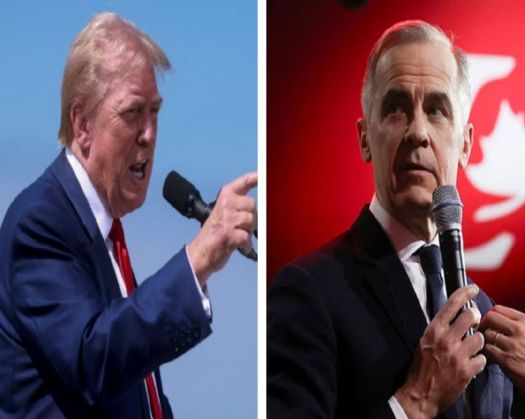Ontario: In response to US President Donald Trump's announcement regarding reciprocal tariffs, Canadian Prime Minister Mark Carney declared that Canada will implement a 25 percent tariff on all US vehicle imports that fail to meet the standards of the free trade agreement.
Carney emphasized that the funds generated from these tariffs will be allocated to support Canadian auto workers and the automotive industry.
In a post shared on X on Thursday (local time), Carney stated, "In retaliation to President Trump's tariffs on our automotive sector, Canada will impose a 25% tariff on all US vehicle imports that do not adhere to our free trade agreement. All proceeds from these tariffs will be dedicated to supporting our Canadian auto workers and their industry."
He also noted that for US vehicles compliant with the Canada-United States-Mexico Agreement (CUSMA), Canada will impose a 25% tariff on any content not sourced from Canada or Mexico. The revenue from these tariffs will similarly be directed towards aiding Canada's auto workers and industry, as mentioned in the post.
Carney further clarified that Canada's tariffs would differ from those enacted by the US, asserting that unlike President Trump's tariffs, Canada's will not impact auto parts.
"Our tariffs, in contrast to President Trump's, will not target auto parts because we recognize the advantages of our supply chain. Canada will also establish a support framework for auto manufacturers that encourages production and investment within the country," Carney wrote on X.
Following the announcement of these reciprocal tariffs, Carney described the US tariffs, especially those on automobiles, as "unjust" and remarked that the "global economy is fundamentally different today than it was yesterday."
The global economy has undergone significant changes compared to the previous day. It is imperative that we act decisively and with intention to safeguard Canadian workers and businesses from the unfair tariffs imposed by the United States, particularly those affecting the automotive sector. We remain committed to defending the interests of Canadians, protecting our workforce and enterprises, and striving to establish the strongest economy within the G7," Carney stated.
On March 4, the United States implemented tariffs of 25% on Canadian goods and 10% on energy and potash exports from Canada. Following this, on March 12, tariffs of 25% were placed on Canadian steel and aluminum products.
On April 3, the US introduced a 25% tariff on Canadian automobiles, impacting the auto industry and the over 500,000 Canadians employed in this sector nationwide.
Additionally, the US plans to impose 25% tariffs on specific automobile parts by May 3.
In response to widespread international backlash, Trump declared a national economic emergency and announced tariffs of at least 10% on imports from all countries, with even steeper rates for 60 nations.
This tariff strategy includes substantial levies on various countries, such as 26% on India, 49% on Cambodia, 46% on Vietnam, 34% on China, 24% on Japan, and 20% on the EU, according to US media reports, indicating that over 180 countries and regions will be affected.
CNN reported on Thursday that US stock prices fell in after-hours trading as President Donald Trump spoke in the Rose Garden and revealed extensive tariff measures. Market observers are now closely watching the Asian indices as they prepare to open for trading.












